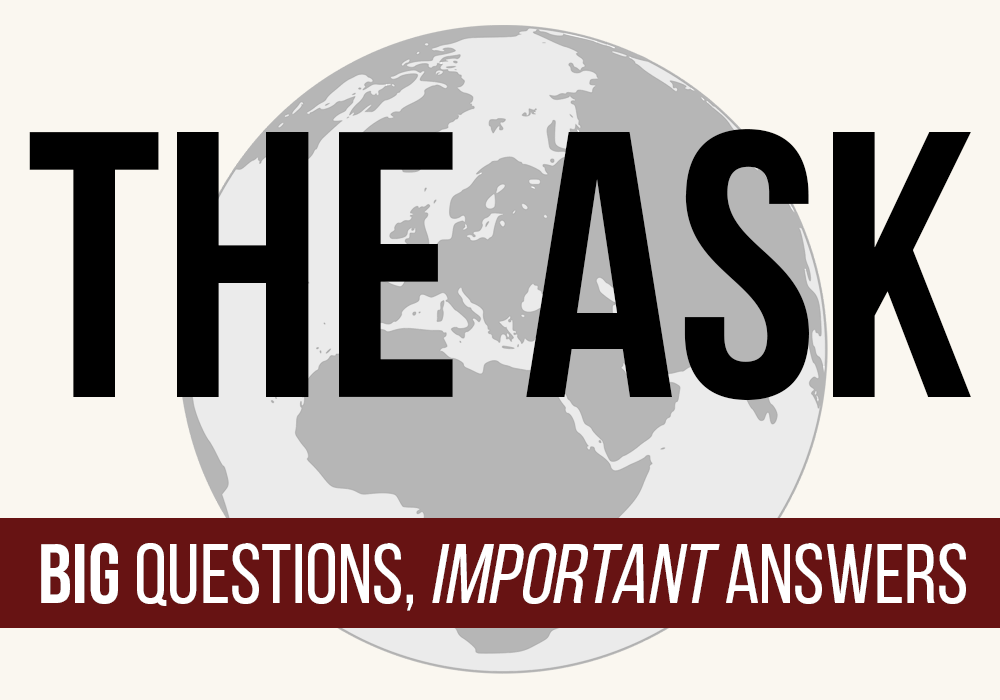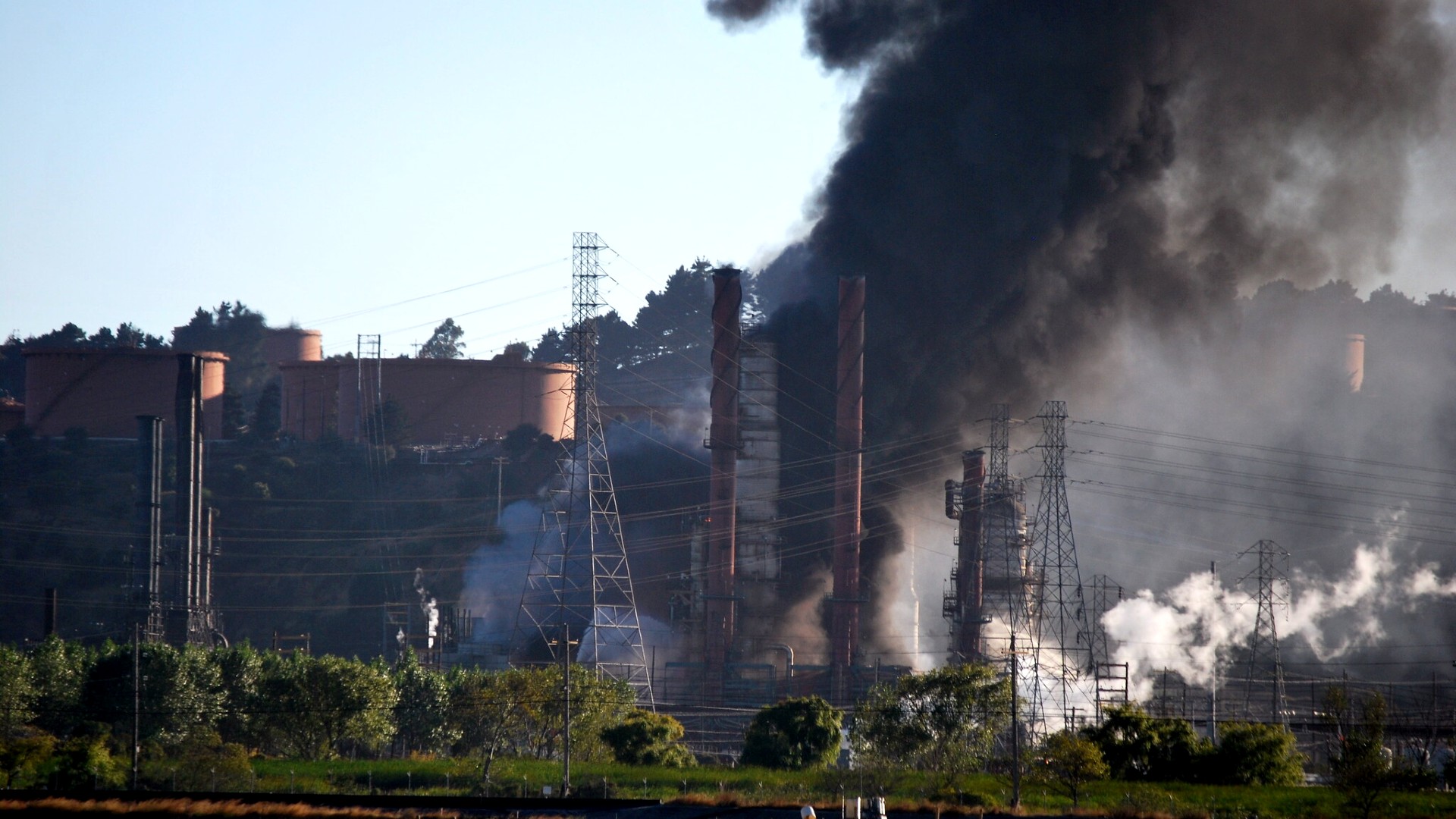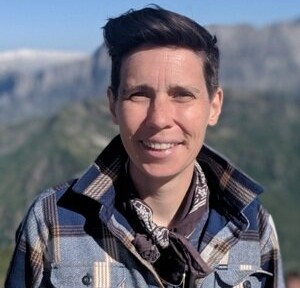Carmelita Miller recalls the black cloud of smoke she saw in the sky the evening of Sept. 9, 2010, when she stepped out of the train station in South San Francisco. Her phone lit up with messages from concerned friends and family. She’d soon learn that a gas pipeline owned by the local power company, PG&E, had exploded in a residential neighborhood a few miles from her home, killing eight people.
Just two years later an explosion across the bay, at a Chevron refinery in Richmond, sent another black cloud of toxic chemicals into the air — and 15,000 people to the emergency room.
“It’s so easy to be cynical about climate justice when things like that are so close to your family,” she says.
Since then she’s seen a growing concern in California over wildfires and heatwaves, situations exacerbated by climate change and fossil fuels. At the same time, Covid hardships have pushed energy utility debt in California to nearly $3 billion, and many families have increasingly struggled to pay their utility bills.
And low-income communities and communities of color are disproportionately affected — by both climate threats and energy debt.

Miller, who was born in the Philippines and grew up in South San Francisco, has spent the past decade trying to get regulators and policymakers to address this burden, and make sure that these same communities aren’t left behind in the clean energy transition. After receiving a law degree, she joined the Greenlining Institute in 2013, eventually becoming the senior director of climate equity. Last month she was hired as the first director of energy equity strategies at the nonprofit RMI. The organization has spent 40 years creating global programs to help speed the transition to clean energy, and her new position will address equity across all of the institute’s programs.
The Revelator spoke to Miller about climate inequities, why the issue is personal for her, and how to best support communities.
You studied the classics in college, before getting a law degree. How did you get involved in climate equity issues?
I always knew that I was going to end up in a form of racial justice advocacy. Even in law school I focused on issues like immigration and employment. It was very natural for me to find programs that weren’t benefiting communities or were harming them.
At Greenlining I was energy counsel and then, eventually, director of the energy and climate team. I worked on low-income proceedings of the California Public Utility Commission and demand-side or customer programs.
It became very clear to me that not a lot of people were paying attention to the heavy financial burden that many community members — even my own family members — were carrying in terms of paying for their energy bills.
Energy equity is personal for you?
I’m way too familiar with it because I grew up poor. I grew up in a household where [making sure we had] housing was primary. But then everything else was a constant negotiation, every paycheck, and every month. Do you get to see the dentist this time around or do you pay your energy bills?
When I joined the Greenlining Institute we were seeing the energy burden in California was so high that many Californians were getting disconnected [from energy services]. That was exacerbated by the recession in 2007 and 2008.
When you overlay those people losing their energy services with those communities impacted by climate change, many are the same. They’re low income communities, vulnerable communities.
We saw people who were going to be disconnected from their power, which could cause them to get evicted, which could cause them to lose their children to Child Protective Services. And then at the same time, those same people are also at risk of being surrounded by wildfire and dealing with extreme heat. That was a very real scenario. It still is a very real scenario.
[A couple of years ago] we were advocating for decarbonizing buildings and transportation to plan for a just transition to clean energy. And then when Covid hit we saw that people couldn’t even keep their homes. California still has a lot of folks who are in debt for energy because Covid just devastated lives and finances.
It became so clear to us that we couldn’t really advocate for energy efficiency, electrification and all the components that will decarbonize our built environment if folks can’t even pay their bills.
What have you seen change in the last decade you’ve been doing this work?
When I started at Greenlining almost 10 year ago, energy and climate justice were separate issues. Now things look different.
We know that energy can be a contributor [to our climate problems], but also a source of benefit and solutions. Companies and governments are beginning to see that and act on it.
Even those who have been afraid to touch the climate issue — banks, the financial sector — we’re showing them that not only is it worth investing in [climate solutions], but we’ll soon be at a time when we won’t have a choice not to.
As RMI’s first director of energy equity strategies, what are your goals?
RMI saw that it had a gap in focusing on residents and particularly frontline communities. In bringing me in, our goal is to create strategies for RMI moving forward that embeds [climate equity] from the get-go.
We hope to lean into our partnerships with organizations on the ground, environmental justice and equity organizations, to ensure that we’re contributing and not taking on someone else’s role. We’re going to figure out what supporting environmental justice and BIPOC communities is for RMI, which focuses on energy transmission and the way we consume energy.
What would success look like?
In the past couple of years, especially because of Covid, it’s hard to feel hopeful and find silver linings. We had people stuck at home and surrounded by wildfire, but it also pushed them to speak out and say, “This ‘business as usual’ — that can’t continue. Let’s talk about what clean energy hasn’t done for me in the past. And let’s talk about what it should do for me and my family.”
Ten or 20 years from now, if I can see that community members are able to show up to whatever forum is happening with knowledge handy so they can advocate for whatever kind of future they want to have for the families, that would be huge.
What’s your advice for others interested in climate equity?
Let’s take the idea of self-determination very seriously. People know what they want for their families. What can we do as advocates, as think tanks, as governmental entities to support that?
![]()
Previously in The Revelator:
Justice First: How to Make the Clean Energy Transition Equitable


